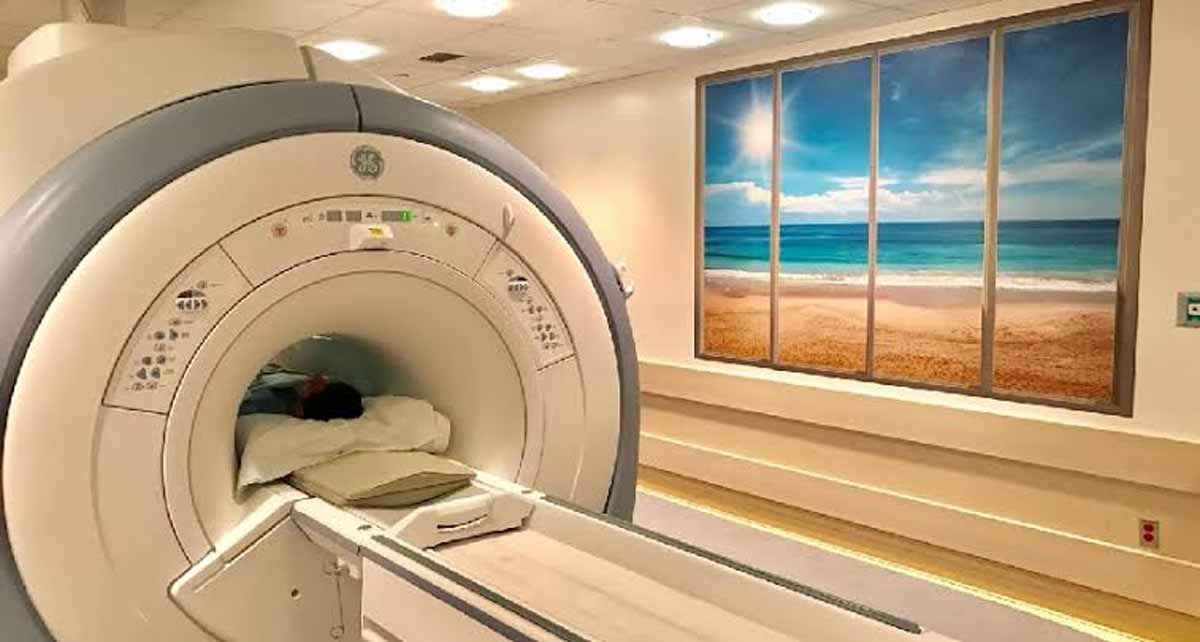- Home
- Editorial
- News
- Practice Guidelines
- Anesthesiology Guidelines
- Cancer Guidelines
- Cardiac Sciences Guidelines
- Critical Care Guidelines
- Dentistry Guidelines
- Dermatology Guidelines
- Diabetes and Endo Guidelines
- Diagnostics Guidelines
- ENT Guidelines
- Featured Practice Guidelines
- Gastroenterology Guidelines
- Geriatrics Guidelines
- Medicine Guidelines
- Nephrology Guidelines
- Neurosciences Guidelines
- Obs and Gynae Guidelines
- Ophthalmology Guidelines
- Orthopaedics Guidelines
- Paediatrics Guidelines
- Psychiatry Guidelines
- Pulmonology Guidelines
- Radiology Guidelines
- Surgery Guidelines
- Urology Guidelines
Cardiac MRI scan can be read in 4 seconds now with help of Artificial Intelligenec, finds study

Cardiac magnetic resonance imaging (MRI) is more efficient and safer than other cardiac diagnostic modalities. A recent study revealed that the performance of cardiac MRI can be further improved with the help of artificial intelligence (AI). The study published in the Circulation: Cardiovascular Imaging, an American Heart Association journal showed that with automated machine learning the scanning time can be reduced to 4 seconds while it takes at least 13 minutes to do a cardiac MRI scan at the moment.
Healthcare professionals regularly use Cardiac magnetic resonance imagings scans to make measurements of heart structure and function that guide patient care and treatment recommendations. Many important clinical decisions including the timing of cardiac surgery, implantation of defibrillators and continuing or stopping cardiotoxic chemotherapy rely on accurate and precise measurements. Improving the performance of these measures could potentially improve patient management and outcomes.
In the UK, where the study was conducted, it is estimated that more than 150,000 Cardiac magnetic resonance imaging scans are performed each year. Based on the number of scans per year, researchers believe that utilizing AI to read scans could potentially lead to saving 54 clinician-days per year at each UK health center.
Researchers trained a neural network to read the cardiac MRI scans and the results of almost 600 patients. When the AI was tested for precision compared to an expert and trainee on 110 separate patients from multiple centers, researchers found that there was no significant difference inaccuracy.
"Cardiovascular magnetic resonance imaging offers unparalleled image quality for assessing heart structure and function; however, current manual analysis remains basic and outdated. Automated machine learning techniques offer the potential to change this and radically improve efficiency, and we look forward to further research that could validate its superiority to human analysis," said study author Charlotte Manisty, M.D. Ph.D. "Our dataset of patients with a range of heart diseases who received scans enabled us to demonstrate that the greatest sources of measurement error arise from human factors. This indicates that automated techniques are at least as good as humans, with the potential soon to be 'super-human'--transforming clinical and research measurement precision."
Although the study did not demonstrate the superiority of AI over human experts and was not used prospectively for clinical assessment of patient outcomes, this study highlights the potential that such techniques could have in the future to improve analysis and influence clinical decision making for patients with heart disease.
For more details, click on the link

Disclaimer: This site is primarily intended for healthcare professionals. Any content/information on this website does not replace the advice of medical and/or health professionals and should not be construed as medical/diagnostic advice/endorsement or prescription. Use of this site is subject to our terms of use, privacy policy, advertisement policy. © 2020 Minerva Medical Treatment Pvt Ltd